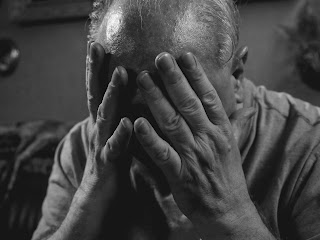Depression can not only feel down, but it can manifest itself in different ways. As a result, it is possible for older people to suffer from depression and not realize it. Subsyndromal depression is more common in people over the age of 50. They may experience fatigue, low appetite, constipation, pain, or poor sleep, as well as a general lack of enthusiasm for life. Some people can become anxious, confused, and forgetful, lose confidence or feel like a burden in extreme circumstances.
Causes of geriatric depression
Depression in old age is common, Guest Posting but not inevitable. Loneliness, sadness, long-term illness, nursing homes, and hospitalization are risk factors for depression. Contact the best home care services for a better environment. Excessive alcohol can often contribute to depression, and a history of mental disorders such as dementia can also play a role.
But, there is no one cause of depression in any age range. A recent study also suggested that the condition may have a hereditary component. As a result, they concluded that biological, social, and psychological factors play a role in depression in the elderly. The following factors can also contribute to depression:
If important neurotransmitter molecules (such as serotonin and norepinephrine) are missing from the brain.
Abuse or death of a loved one or any traumatic life events.
Older people can become depressed due to many unexpected problems, such as:
Bedridden or with limited mobility
Isolation from friends and family
He has to deal with death
The transition from employment to retirement is difficult.
Money troubles
Death of spouses, friends, and other loved ones
Long-term substance dependence
Divorce
Chronic medical illness
Since older adults are prone to various illnesses, they can sometimes lead to depression:
Parkinson's disease (neurological disorder)
Stroke
Ischemic heart disease
Cancer
Diabetes
Thyroid problems
B12 deficiency
Alzheimer's disease and dementia
Many sclerosis
Lupus
Geriatric depression symptoms are often considered a side effect of many prescribed medications. Those who use a lot of drugs may be more vulnerable. While anyone can be affected by the mood-related side effects of some medications, older adults are especially vulnerable because their bodies become less efficient at metabolizing and absorbing medications as they age.
If you feel sad after starting a new medication, talk to your doctor right away about reducing the dose or switching to a different medication. This is why precautions should be taken when taking certain medicines such as:
Medicines for high blood pressure
Beta-blockers
Medicines to control high cholesterol
Tranquilizers
Calcium channel blockers
drugs for Parkinson's disease
Sleeping pills
Medicines for ulcers
Heart medicines containing reserpine
Steroids
Painkillers
Arthritis drugs
Estrogens
Anticholinergics are used to treat gastrointestinal problems.
Symptoms of depression
Most of the time, elderly people who are depressed do not recognize the symptoms of depression or do not take the necessary steps to get help. There are various reasons why depression in older people is often overlooked, such as the assumption that they are depressed for a legitimate reason or that depression is a natural part of aging. When there are few people around who see your plight, you can feel less understood and alone, which can contribute to depression. You may not realize that your body concerns are symptoms of depression.
Risks of depression
Depression can increase the chance of getting other diseases and affect the severity of hip fractures, strokes, and heart attacks. It can be challenging to detect in elder care, as the physical symptoms of depression could be mistaken for other long-term illnesses. Older adults may also fear stigma if they are depressed. Thus, they do not need to seek care. As a result, it is always good to watch for signs and symptoms that must a deeper understanding of the symptoms.
Treatment of depression in the elderly
Depression, like any illness, can be treated by reducing risk factors, so start by asking questions, seeing the person, and understanding them rather than their age. Medicine, psychotherapy or counseling, electroconvulsive therapy, or other newer forms of brain stimulation are all treatment options for depression (such as repetitive transcranial magnetic stimulation or rTMS). In some cases, a combination of these treatments may be used. A doctor's recommendation is based on a variety of factors, including the type and severity of depression symptoms, previous therapies, and health. Try home physiotherapy services in Dubai for the best experience.
Common forms of depression treatment include:
Psychotherapy, counseling, or "talk therapy" is a type of therapy that can help a person identify and change problematic emotions, beliefs, and behaviors. This could be done with the help of a psychologist, licensed clinical social worker (LCSW), psychiatrist, or other qualified mental health care provider. Cognitive-behavioral therapy (CBT) and interpersonal psychotherapy (IPT) are two treatments for depression (IPT).
Antidepressants come in different forms. They can help balance hormones that affect mood, such as serotonin. Antidepressants such as selective serotonin reuptake inhibitors (SSRIs) are usually recommended for the elderly. A psychiatrist, mental health nurse, or primary care physician can prescribe.
Electroconvulsive therapy (ECT) is a procedure that involves placing electrodes on a person's head to allow a safe, mild electrical current to pass through the brain. This type of therapy is usually only considered after other therapies have failed to improve a person's condition.
Support from family and friends, participation in self-help and support groups, and psychotherapy are beneficial for most depressed people. Psychotherapy is particularly effective for those who have had high levels of stress (such as loss of friends and family, moving house, and health problems) or who prefer not to take medication and have only mild to moderate symptoms.
This is why we should help. First, we need to change our perception that aging brings depression because it doesn't. Second, you can help your aging parent or loved one connect with professionals and resources that can help them manage their anxiety and ease their pain. So instead of ignoring these symptoms, step up and share your concerns and help connect them with the right professionals.


Comments
Post a Comment